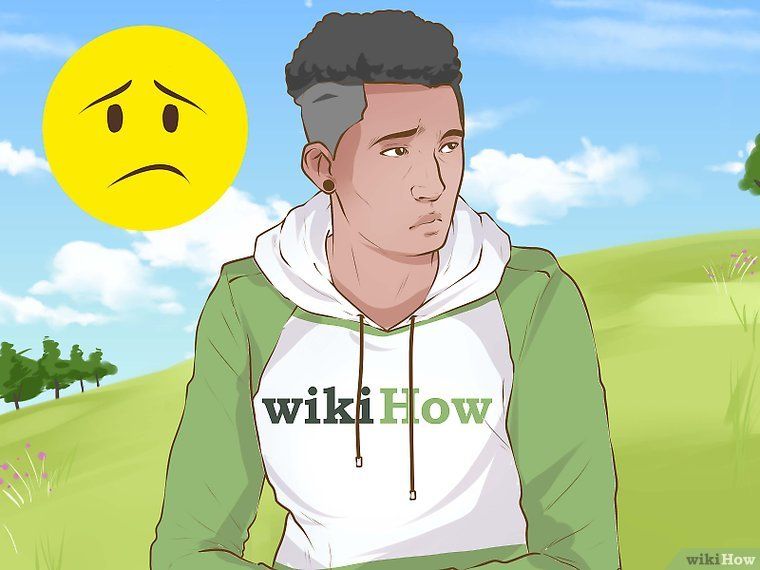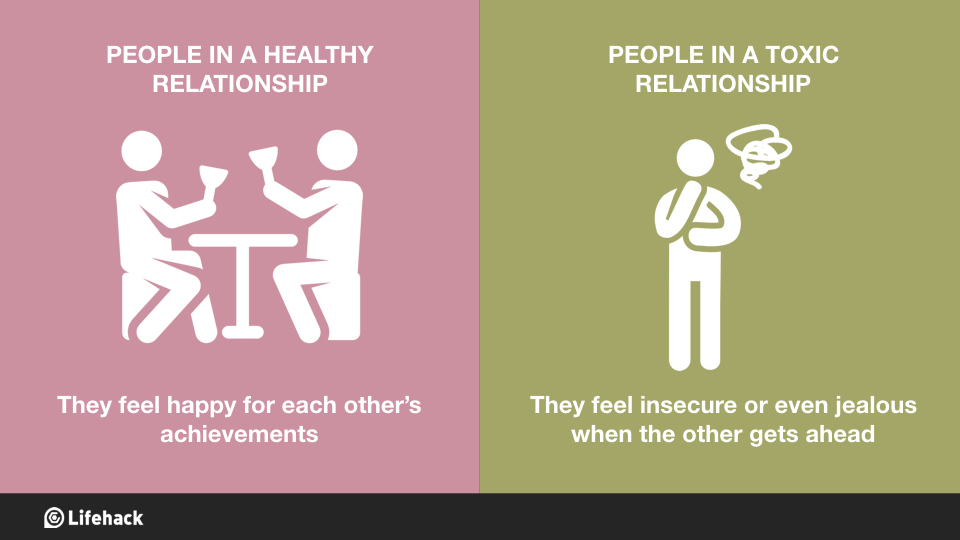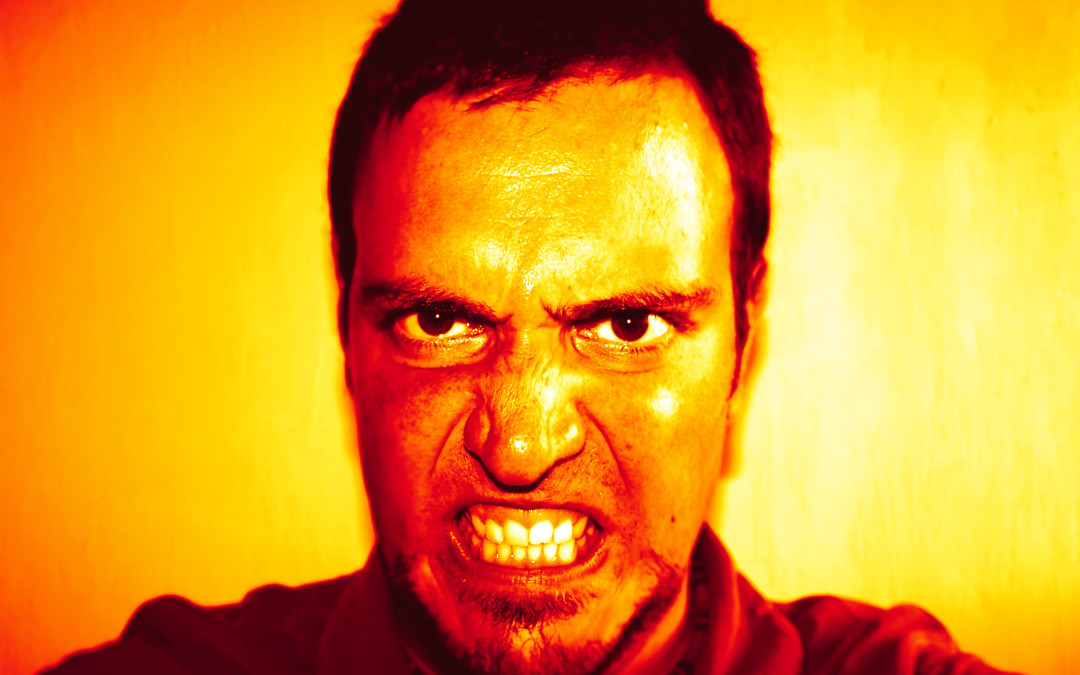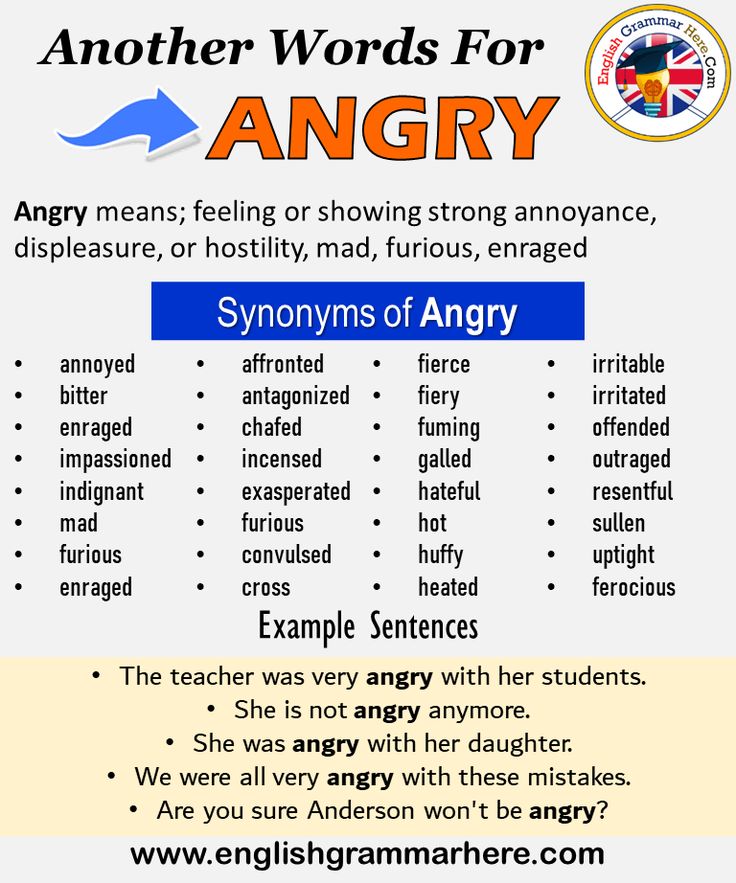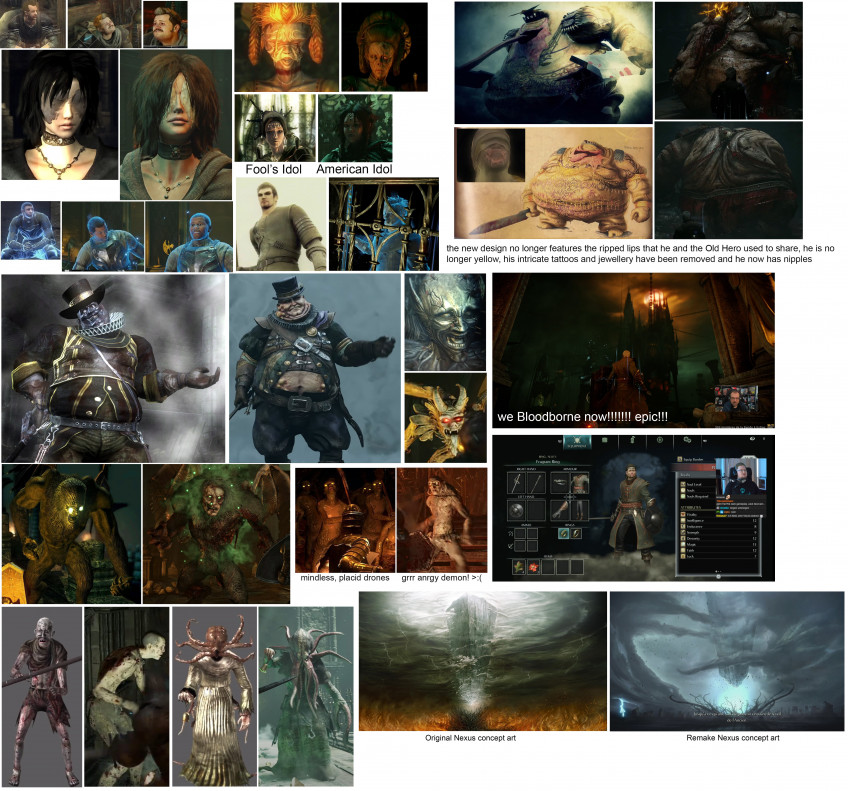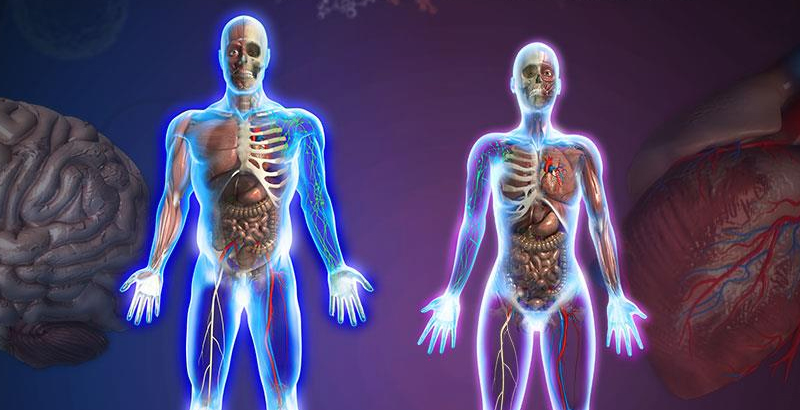Break your addiction to a person
How Do You Break an Addiction to a Person?
If you find it hard to end relationships, addressing the underlying causes could help as well as understanding what addiction really is.
Maybe you know a relationship isn’t supporting your physical and emotional health but feel unable to leave it. Or you might feel like you can’t stop thinking about your partner and their needs to the point that you leave your own on the back burner.
In fact, you may think you’re addicted to that person and you may even experience love addiction withdrawal.
What you feel is real and has an explanation. But rather than addiction, some researchers refer to this experience as emotional dependence.
Love addiction or addiction to people aren’t formal mental health diagnoses.
In fact, the term “addiction” is no longer used in general. Instead, medical experts talk about substance use disorder.
But people and relationships aren’t substances, and they don’t have the same effects on you.
Although not everyone agrees, some researchers suggest you could experience symptoms similar to those of someone living with substance use disorder.
For example:
- intense cravings
- significant changes in mood, including feeling fearful or anxious
- neglecting other responsibilities and relationships
- having your life revolve around that person
- staying in the relationship even when experiencing negative consequences
- symptoms of withdrawal when apart from that person
But while emotional dependence can lead you to engage in behaviors that may mirror symptoms of substance use disorder, this isn’t the same as addiction. The causes and processes in place are different.
It isn’t possible to be addicted to a person.
In fact, the Diagnostic and Statistical Manual of Mental Disorders, 5th edition (DSM-5) doesn’t recognize any non-substance addictive behaviors because there’s limited to no evidence for it. That includes relationship and sex addiction.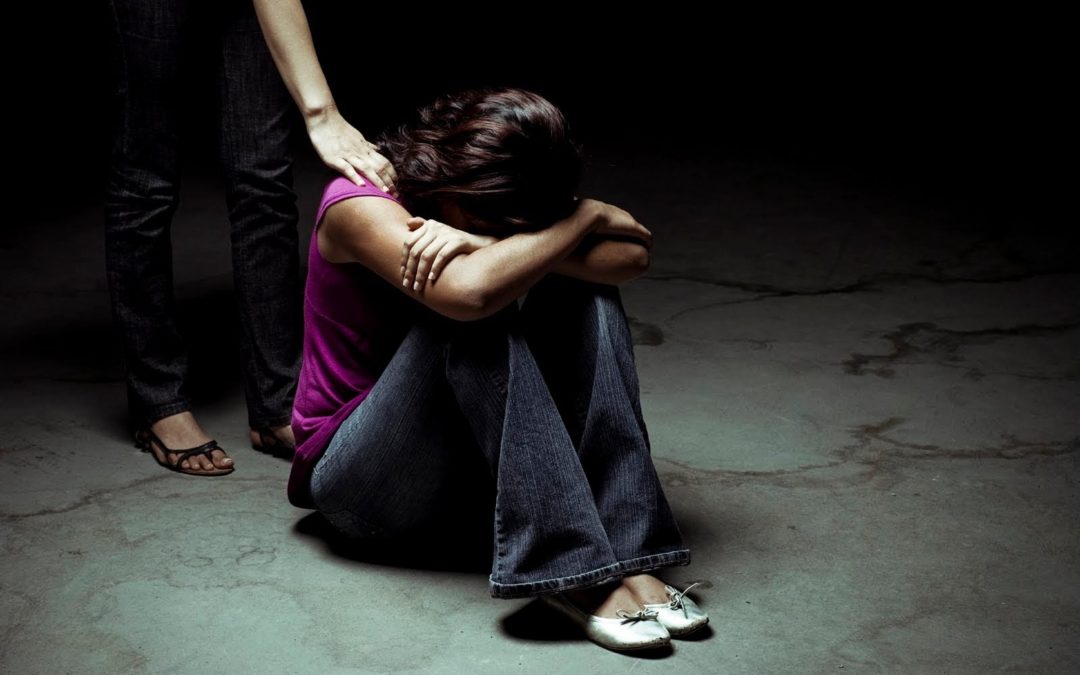
Researchers also distinguish between substance addiction and “addiction” in relationships because love, unlike substance use, is a desirable experience for most people.
Still, research from 2016 suggests that because romance can stimulate the reward centers of the brain in a similar way to substances, it could lead to certain patterns that mimic what some people call addiction — or, more accurately, compulsive behavior.
Some people also live with a condition called erotomania.
Erotomania is a type of delusion that makes you believe someone is in love with you, even if there’s no evidence to support this belief. Most often, this other person is a celebrity or someone you admire.
If it feels difficult to let someone go even when you know it’s for the best, a few different factors other than addiction might be at play.
Attachment style
According to attachment theory, your attachment style — or the way you bond with others — forms through some of your earliest relationships, such as with your parents or primary caregiver.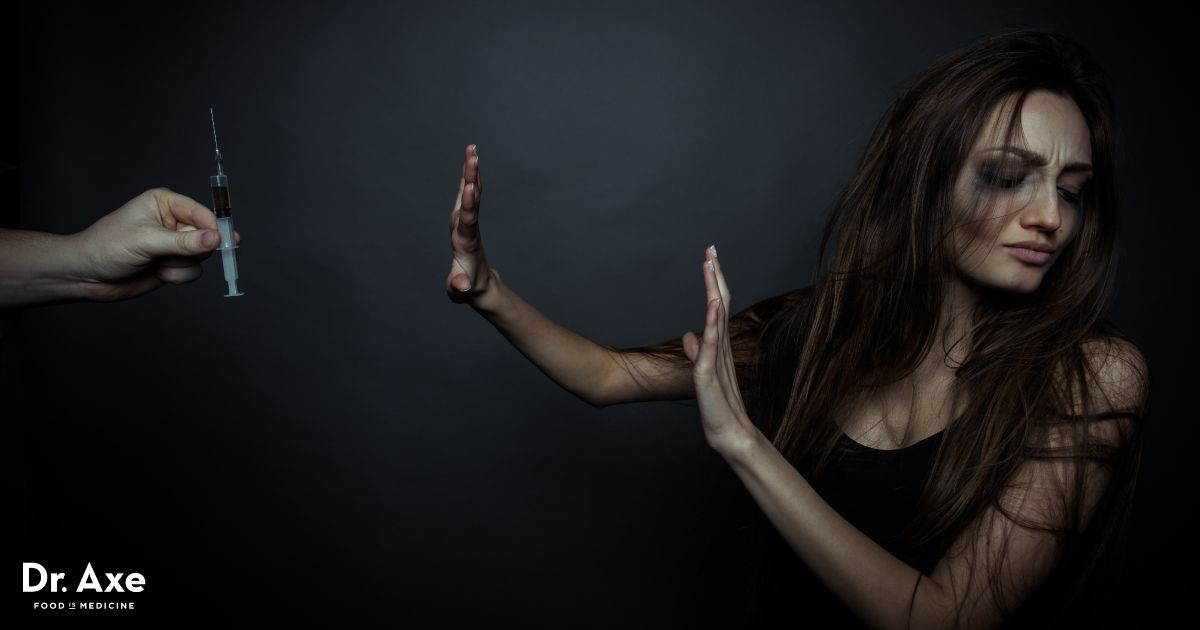
While a secure attachment style tends to support balanced relationships, an insecure attachment style can cause more stress.
According to 2019 research, insecure attachment styles — especially anxious and avoidant types — were associated with less satisfaction in relationships.
Other research from 2015 connects anxious attachment with lower levels of trust in romantic relationships.
Understanding your attachment style can help you identify how you expect a relationship to meet your needs.
For example, if you have an anxious attachment style, you might feel like you can’t rely on your partner to consistently meet your needs, which can lead to fear of abandonment.
Fear of abandonment
Fear of abandonment can make it feel like any relationship is better than being alone. And if you feel this way, it can be harder to break off a relationship even when you know it might not be the right choice for you.
While experts believe anxious attachment plays a significant role in abandonment anxiety, there may be more to the story.
You might also fear abandonment if you:
- live with a personality disorder
- were abandoned in the past by a parent or partner
- have a history of trauma or live with post-traumatic stress disorder (PTSD)
Codependency
Some people find viewing their codependency symptoms through the lens of addiction is helpful when communicating their experience with others, even though experts don’t recognize the term as a formal condition.
In relationships, codependency is linked to:
- difficulty with authenticity
- an unclear sense of self
- people-pleasing behaviors
Research from 2018 suggests codependency could stem from early childhood experiences.
One theory is that rigid and unsupportive family environments lead to codependency when you feel that changing yourself to fit a parent’s expectations is the only way to be accepted.
These feelings can carry over into adult relationships, making it harder to maintain your sense of self and needs.
Mental health conditions
Research from 2015 suggests that what you may feel is an addiction to a person could be better explained by mental health conditions such as:
- Personality disorders. Borderline personality disorder, dependent personality disorder, and histrionic personality disorder are connected to anxious attachment styles and sensitivity to rejection.
- Anxiety disorders. If you live with an anxiety disorder, it could feed into unbalanced emotional dependence in a relationship. For example, separation anxiety can cause intense stress at the thought of being apart from a loved one.
- Bipolar disorder. Research from 2019 reports that intense romantic attachment causes symptoms of hypomania similar to hypomania that people with bipolar II disorder experience, suggesting these relationships and bipolar disorder may be activating the same regions of the brain.
Obsessive love vs.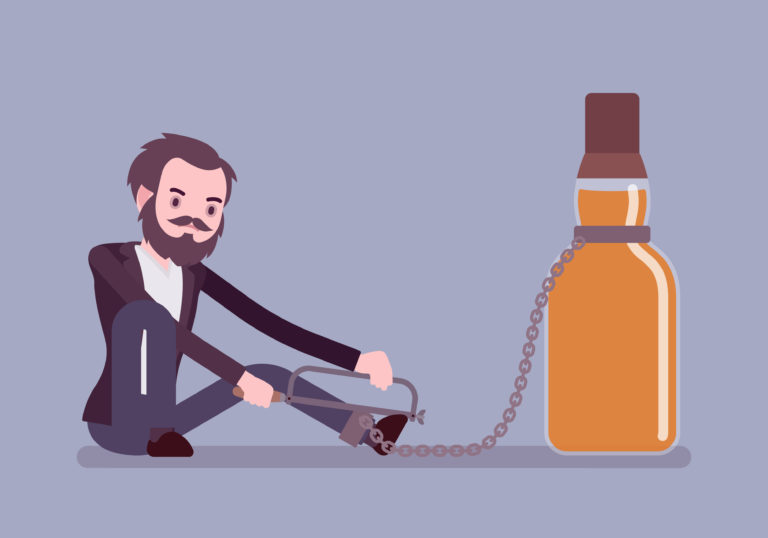 OCD
OCD
Sometimes, people refer to love as “obsessive,” which might make it easy to confuse with obsessive-compulsive disorder (OCD).
While emotional dependence can cause intrusive thoughts about the other person, it’s not the same as OCD, a formal mental health condition.
In OCD, obsessions are distressing thoughts you cannot control and might become a source of shame. They also often lead you to engage in compulsive behaviors to relieve the stress they cause you.
If you tend to become overly dependent on people or relationships, breaking them off may sound challenging. It’s natural to feel this way.
Even if that coping mechanism wasn’t supporting your well-being, losing it can take an emotional toll.
This is why it’s so common to re-engage in some relationships even after you’ve promised yourself you’ll never go back.
Learning new ways to manage difficult emotions can help you stay away from old relationship patterns for good.
Try to keep notes (or a journal)
Journaling might provide a few benefits if you’re looking to disconnect from a toxic relationship, including:
- serving as a written reminder of why you’re leaving the relationship when you feel like reconsidering
- helping you reconnect with yourself and establish a clearer vision of your own goals and dreams
- allowing you to identify and process difficult emotions
Consider reconnecting with a hobby or goal
Relationships that consume all of your energy and attention can leave you feeling like you no longer know the real “you. ”
”
If you feel disconnected from yourself, the first step might be exploring potential areas of interest or asking what goals motivate you. When you’ve found a potential answer, consider dedicating time every day to explore that hobby or work toward that goal.
Practicing somatic exercises might help
Overdependence on a partner or relationship can be a maladaptive, or unproductive, strategy for coping with difficult emotions.
Somatic therapy, which helps you tune in to your own physical and emotional responses to stress, could help you reestablish a sense of self and develop emotional regulation skills, according to 2018 research.
While somatic therapy often works best with the support of a trained therapist, you can try these four exercises at home.
Try inner child work
Acknowledging and reconnecting with your inner child could help you overcome emotional dependence in relationships, especially if past trauma has shaped how you approach relationships.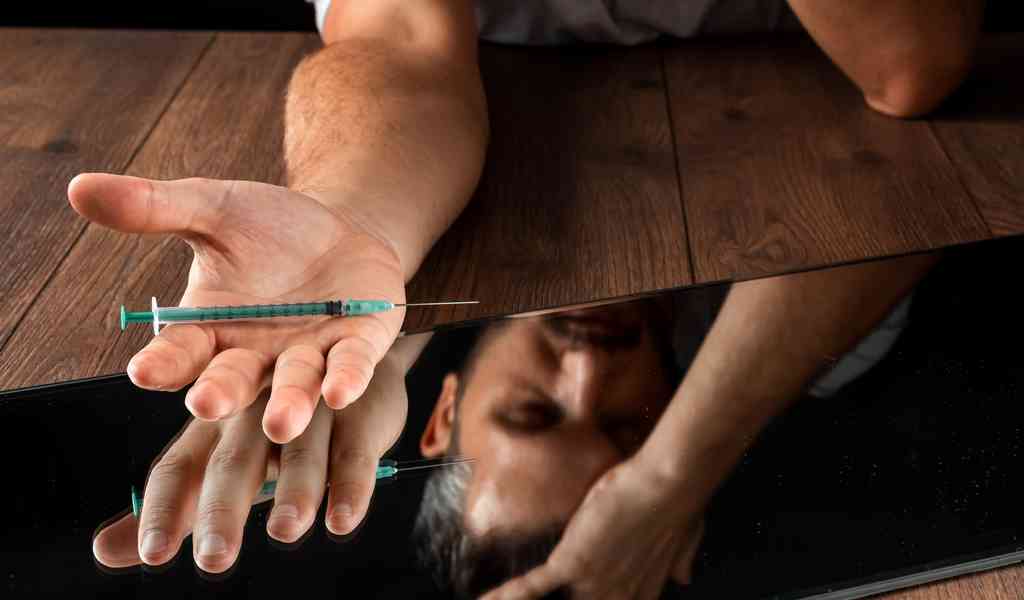
Inner child work focuses on:
- healing childhood trauma and complex PTSD
- addressing and reducing feelings of shame
- developing self-compassion
A trauma-informed therapist can guide you through the process of inner child work, but you can also practice some aspects of it on your own. Here’s how to get started.
Consider a support group
Some people report that talking with others who identify with the concept of love addiction is a significant part of healing from emotional dependence.
If you’re interested in joining a support group, you might be able to find a local group in your community.
Therapy can help
According to 2019 research, certain forms of therapy could allow you to challenge your current relationship patterns by helping you:
- confront cognitive distortions
- improve communication with yourself
- separate fantasy from reality in relationships
- develop a secure attachment style
These forms of therapy include cognitive behavioral therapy (CBT) and psychodynamic therapy.
Working with a therapist may also help you reconnect with yourself if you feel out of touch with your own wants and needs.
Although addiction to a person isn’t a formal medical diagnosis, it’s possible to fall into a pattern of emotional dependence on someone.
Breaking out of this relationship pattern can be difficult and often means getting to the root of what’s causing your emotional dependence. Emotional regulation strategies, patience, and self-compassion can help you through this process.
How Do You Break an Addiction to a Person?
If you find it hard to end relationships, addressing the underlying causes could help as well as understanding what addiction really is.
Maybe you know a relationship isn’t supporting your physical and emotional health but feel unable to leave it. Or you might feel like you can’t stop thinking about your partner and their needs to the point that you leave your own on the back burner.
In fact, you may think you’re addicted to that person and you may even experience love addiction withdrawal.
What you feel is real and has an explanation. But rather than addiction, some researchers refer to this experience as emotional dependence.
Love addiction or addiction to people aren’t formal mental health diagnoses.
In fact, the term “addiction” is no longer used in general. Instead, medical experts talk about substance use disorder.
But people and relationships aren’t substances, and they don’t have the same effects on you.
Although not everyone agrees, some researchers suggest you could experience symptoms similar to those of someone living with substance use disorder.
For example:
- intense cravings
- significant changes in mood, including feeling fearful or anxious
- neglecting other responsibilities and relationships
- having your life revolve around that person
- staying in the relationship even when experiencing negative consequences
- symptoms of withdrawal when apart from that person
But while emotional dependence can lead you to engage in behaviors that may mirror symptoms of substance use disorder, this isn’t the same as addiction. The causes and processes in place are different.
The causes and processes in place are different.
It isn’t possible to be addicted to a person.
In fact, the Diagnostic and Statistical Manual of Mental Disorders, 5th edition (DSM-5) doesn’t recognize any non-substance addictive behaviors because there’s limited to no evidence for it. That includes relationship and sex addiction.
Researchers also distinguish between substance addiction and “addiction” in relationships because love, unlike substance use, is a desirable experience for most people.
Still, research from 2016 suggests that because romance can stimulate the reward centers of the brain in a similar way to substances, it could lead to certain patterns that mimic what some people call addiction — or, more accurately, compulsive behavior.
Some people also live with a condition called erotomania.
Erotomania is a type of delusion that makes you believe someone is in love with you, even if there’s no evidence to support this belief. Most often, this other person is a celebrity or someone you admire.
If it feels difficult to let someone go even when you know it’s for the best, a few different factors other than addiction might be at play.
Attachment style
According to attachment theory, your attachment style — or the way you bond with others — forms through some of your earliest relationships, such as with your parents or primary caregiver.
While a secure attachment style tends to support balanced relationships, an insecure attachment style can cause more stress.
According to 2019 research, insecure attachment styles — especially anxious and avoidant types — were associated with less satisfaction in relationships.
Other research from 2015 connects anxious attachment with lower levels of trust in romantic relationships.
Understanding your attachment style can help you identify how you expect a relationship to meet your needs.
For example, if you have an anxious attachment style, you might feel like you can’t rely on your partner to consistently meet your needs, which can lead to fear of abandonment.
Fear of abandonment
Fear of abandonment can make it feel like any relationship is better than being alone. And if you feel this way, it can be harder to break off a relationship even when you know it might not be the right choice for you.
While experts believe anxious attachment plays a significant role in abandonment anxiety, there may be more to the story.
You might also fear abandonment if you:
- live with a personality disorder
- were abandoned in the past by a parent or partner
- have a history of trauma or live with post-traumatic stress disorder (PTSD)
Codependency
Some people find viewing their codependency symptoms through the lens of addiction is helpful when communicating their experience with others, even though experts don’t recognize the term as a formal condition.
In relationships, codependency is linked to:
- difficulty with authenticity
- an unclear sense of self
- people-pleasing behaviors
Research from 2018 suggests codependency could stem from early childhood experiences.
One theory is that rigid and unsupportive family environments lead to codependency when you feel that changing yourself to fit a parent’s expectations is the only way to be accepted.
These feelings can carry over into adult relationships, making it harder to maintain your sense of self and needs.
Mental health conditions
Research from 2015 suggests that what you may feel is an addiction to a person could be better explained by mental health conditions such as:
- Personality disorders. Borderline personality disorder, dependent personality disorder, and histrionic personality disorder are connected to anxious attachment styles and sensitivity to rejection.
- Anxiety disorders. If you live with an anxiety disorder, it could feed into unbalanced emotional dependence in a relationship. For example, separation anxiety can cause intense stress at the thought of being apart from a loved one.
- Bipolar disorder.
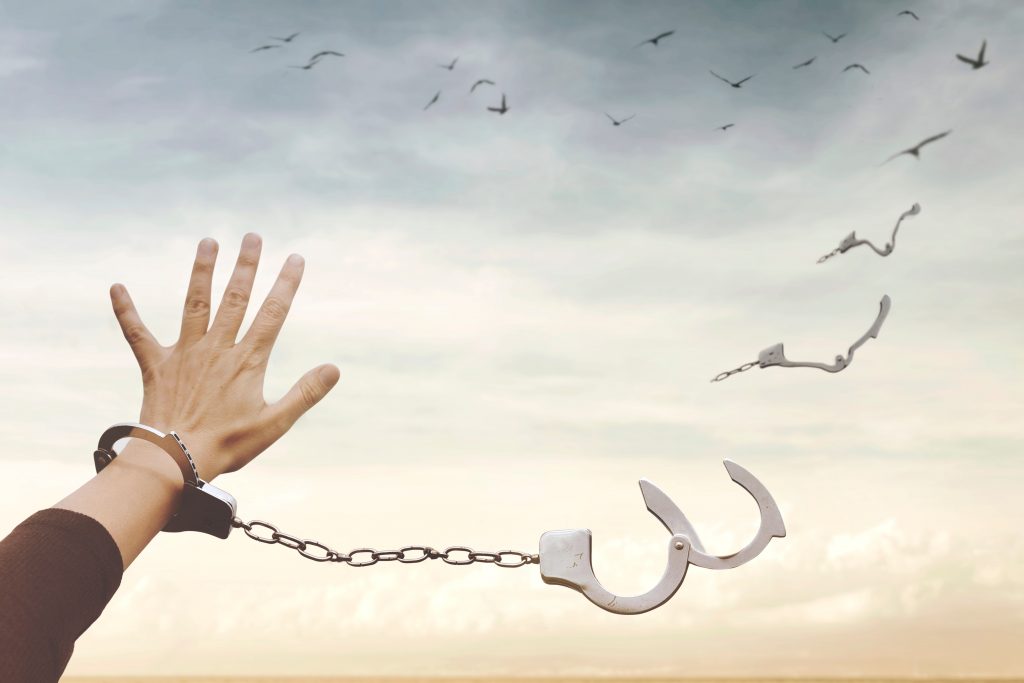 Research from 2019 reports that intense romantic attachment causes symptoms of hypomania similar to hypomania that people with bipolar II disorder experience, suggesting these relationships and bipolar disorder may be activating the same regions of the brain.
Research from 2019 reports that intense romantic attachment causes symptoms of hypomania similar to hypomania that people with bipolar II disorder experience, suggesting these relationships and bipolar disorder may be activating the same regions of the brain.
Obsessive love vs. OCD
Sometimes, people refer to love as “obsessive,” which might make it easy to confuse with obsessive-compulsive disorder (OCD).
While emotional dependence can cause intrusive thoughts about the other person, it’s not the same as OCD, a formal mental health condition.
In OCD, obsessions are distressing thoughts you cannot control and might become a source of shame. They also often lead you to engage in compulsive behaviors to relieve the stress they cause you.
If you tend to become overly dependent on people or relationships, breaking them off may sound challenging. It’s natural to feel this way.
Even if that coping mechanism wasn’t supporting your well-being, losing it can take an emotional toll.
This is why it’s so common to re-engage in some relationships even after you’ve promised yourself you’ll never go back.
Learning new ways to manage difficult emotions can help you stay away from old relationship patterns for good.
Try to keep notes (or a journal)
Journaling might provide a few benefits if you’re looking to disconnect from a toxic relationship, including:
- serving as a written reminder of why you’re leaving the relationship when you feel like reconsidering
- helping you reconnect with yourself and establish a clearer vision of your own goals and dreams
- allowing you to identify and process difficult emotions
Consider reconnecting with a hobby or goal
Relationships that consume all of your energy and attention can leave you feeling like you no longer know the real “you.”
If you feel disconnected from yourself, the first step might be exploring potential areas of interest or asking what goals motivate you.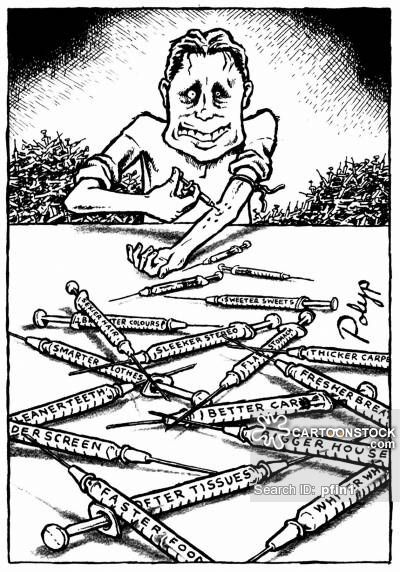 When you’ve found a potential answer, consider dedicating time every day to explore that hobby or work toward that goal.
When you’ve found a potential answer, consider dedicating time every day to explore that hobby or work toward that goal.
Practicing somatic exercises might help
Overdependence on a partner or relationship can be a maladaptive, or unproductive, strategy for coping with difficult emotions.
Somatic therapy, which helps you tune in to your own physical and emotional responses to stress, could help you reestablish a sense of self and develop emotional regulation skills, according to 2018 research.
While somatic therapy often works best with the support of a trained therapist, you can try these four exercises at home.
Try inner child work
Acknowledging and reconnecting with your inner child could help you overcome emotional dependence in relationships, especially if past trauma has shaped how you approach relationships.
Inner child work focuses on:
- healing childhood trauma and complex PTSD
- addressing and reducing feelings of shame
- developing self-compassion
A trauma-informed therapist can guide you through the process of inner child work, but you can also practice some aspects of it on your own. Here’s how to get started.
Here’s how to get started.
Consider a support group
Some people report that talking with others who identify with the concept of love addiction is a significant part of healing from emotional dependence.
If you’re interested in joining a support group, you might be able to find a local group in your community.
Therapy can help
According to 2019 research, certain forms of therapy could allow you to challenge your current relationship patterns by helping you:
- confront cognitive distortions
- improve communication with yourself
- separate fantasy from reality in relationships
- develop a secure attachment style
These forms of therapy include cognitive behavioral therapy (CBT) and psychodynamic therapy.
Working with a therapist may also help you reconnect with yourself if you feel out of touch with your own wants and needs.
Although addiction to a person isn’t a formal medical diagnosis, it’s possible to fall into a pattern of emotional dependence on someone.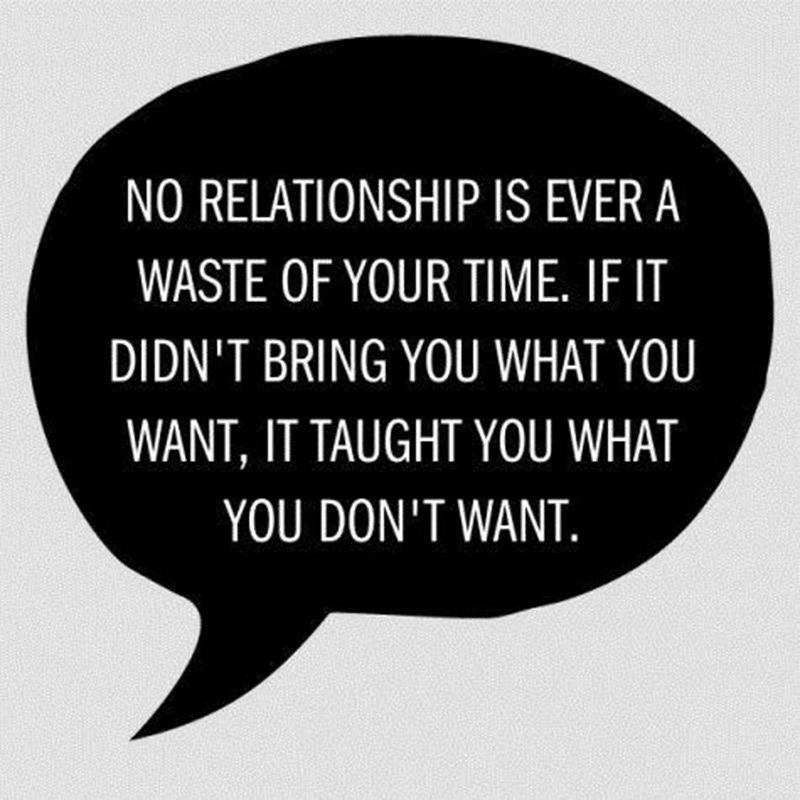
Breaking out of this relationship pattern can be difficult and often means getting to the root of what’s causing your emotional dependence. Emotional regulation strategies, patience, and self-compassion can help you through this process.
Dependence on a person, types of addictions in psychology
- Human addiction: what is it?
- Types of emotional dependence
- What is the cause of a dependent relationship?
- Test: test yourself
- Step-by-step instructions for getting rid of addiction
- When should I consult a psychologist?
We often fear the emergence of addiction to drugs, alcohol, smoking, gambling, but at the same time we do not take into account that painful dependence on another person can also greatly complicate our life and become very dangerous for health.
After reading this article, you will understand what causes addiction to a person, learn to distinguish its signs, and, most importantly, understand how to get rid of such a pathology and return to a full life.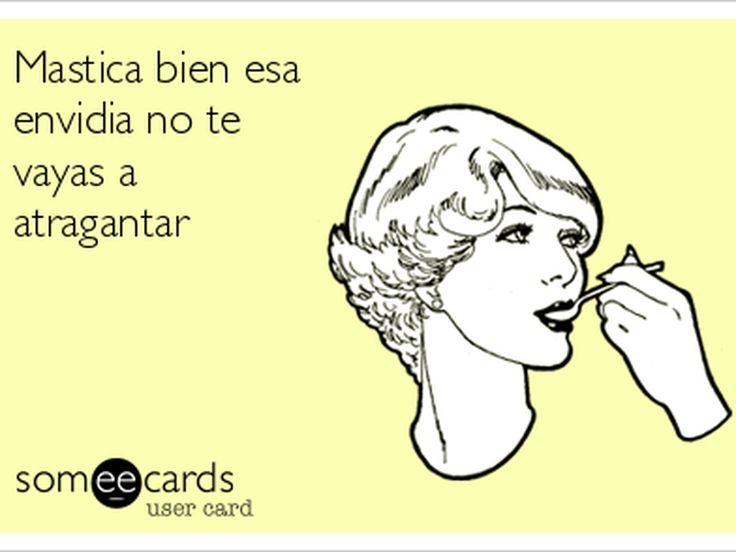
Dependence on a person: what is it?
Dependence (addiction) on a person is a psychological condition in which a dependent individual experiences a pathological attachment to the object of his love. Because of this, a person practically loses his personality, lives with the problems and joys of his partner.
Addictive behavior is due to the inability to take responsibility for one's feelings and actions, and the accompanying negative emotions (sadness, doubts, resentment, anxiety, insecurity) in an addicted person are not always able to cope on their own. It takes great courage, and often the help of a competent psychologist, to find the resources to confront yourself and overcome addiction.
Types of emotional dependence
Dependence can be of different types in different kinds of relationships.
- Love addiction usually begins with a fabulous love story – two people are constantly inseparable, enjoy each other’s company, new sensations, while friends, girlfriends, relatives fade into the background – lovers don’t need anyone.
 Then feelings subside and there is a desire to diversify an isolated life with hobbies and meetings with friends. Healthy relationships easily cope with this period, but pathological ones do not. The dependent partner has a feeling that he is no longer loved, that he has been abandoned and betrayed, and resentment, jealousy and dissatisfaction become the main emotions. As a result, the initial idyll is replaced by quarrels, accusations and threats.
Then feelings subside and there is a desire to diversify an isolated life with hobbies and meetings with friends. Healthy relationships easily cope with this period, but pathological ones do not. The dependent partner has a feeling that he is no longer loved, that he has been abandoned and betrayed, and resentment, jealousy and dissatisfaction become the main emotions. As a result, the initial idyll is replaced by quarrels, accusations and threats. - Friendly addiction resembles love addiction, with the only caveat that the characters are friends. There is the same jealousy for other people and activities, the fear of losing a friend and an urgent need to communicate with him. If a friend has a loved one or other friendships, the addict becomes depressed and feels betrayed.
- Parental addiction is a type of addiction that is formed in early childhood due to incorrect upbringing. Usually this happens with the despotic behavior of parents who adhere to a totalitarian style of upbringing or themselves became a victim, experienced psychological trauma, grew up in an incomplete family.
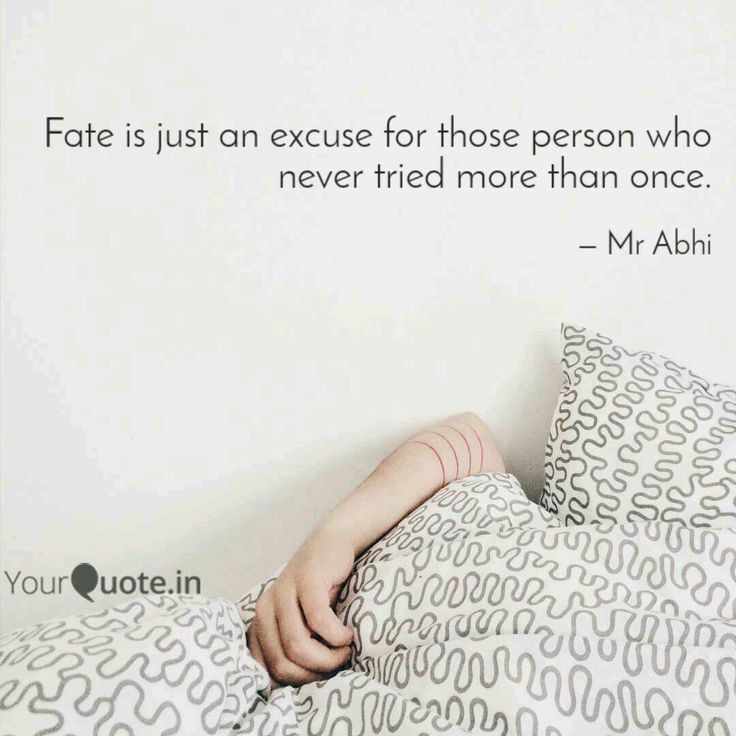 Such parents stop any attempts of the child to independence, they are afraid to remain alone, to be abandoned. Their actions have the color of manipulation - they invent non-existent diseases, promise an inheritance - in a word, they do everything so that the child needs them, simultaneously depriving him of the opportunity to develop a sense of responsibility, make decisions himself, and make an adequate assessment of his actions.
Such parents stop any attempts of the child to independence, they are afraid to remain alone, to be abandoned. Their actions have the color of manipulation - they invent non-existent diseases, promise an inheritance - in a word, they do everything so that the child needs them, simultaneously depriving him of the opportunity to develop a sense of responsibility, make decisions himself, and make an adequate assessment of his actions.
What is the reason for a dependent relationship?
If you recognize yourself, your partner or the history of acquaintances / relatives, you will probably be interested: what is the reason for such a picture, what is wrong, why did this happen?
Emotional dependence is usually caused by:
- parental dislike in childhood;
- the presence of psychotrauma suffered in childhood;
- excessive parental care;
- markedly low self-esteem, self-doubt;
- the desire to receive the approval and praise of parents and others;
- disrespectful attitude of parents;
- existence in poor material conditions;
- emotional infantilism;
- fear of own uselessness;
- fear of loneliness;
- inability to take responsibility for one's own behavior;
- frequent criticism;
- the desire to be in someone's submission;
- wrong upbringing;
- a ridiculous idea of \u200b\u200blove, the desire to be one with the object of adoration, to be together from morning to evening;
- the presence of psychological complexes.

Test: test yourself
How do you know if you are addicted? Usually, a strong sense of dependence on another person is manifested in total control over her actions and movements, in the desire to constantly be around, in the loss of self-control over her thoughts, feelings, behavior.
The next 9-question TEST will help you determine if a person is addicted or not. Please answer "Yes" or "No" questions as honestly as possible.
- Do you often feel anxious when you think about your relationship?
- Is it difficult for you to refuse your partner?
- Do you need your partner's approval?
- Does your self-esteem depend on such approval?
- When your partner praises you, your mood rises noticeably, do you like yourself?
- Do you feel fear if your partner is dissatisfied with you?
- Do you panic if your loved one is in a bad mood?
- Can't you imagine life without a loved one?
- Are your former interests no longer enjoyable?
- You no longer use passwords, do not have secrets from your partner and require the same from him?
If you did not give a positive answer to any question, you do not have a dependence on a partner.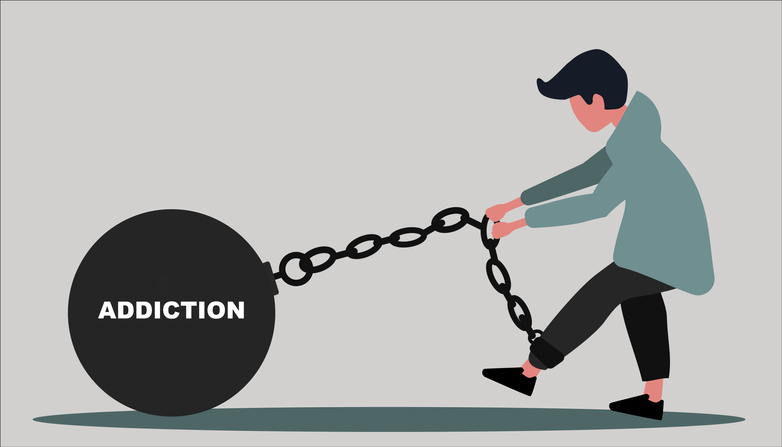
If you answered “Yes” 1-2 times, you have a mild stage of addiction that you can handle on your own. Analyze your behavior from the outside, study the information on this topic, think about how to fix the situation.
From 3 to 5 positive answers indicate that you have an average degree of addiction and it is recommended that you consult a psychologist / psychotherapist in order to understand in which direction you should work on yourself.
More than 5 positive answers indicate a severe degree of dependence. You need to take action and seek help from a specialist.
And we will tell you about ways to correct addictive behavior.
Step-by-step addiction recovery guide
- Step 1 - Awareness. Begin by recognizing and accepting that addiction exists. Mentally talk to yourself, say that you would like to get rid of this condition. This step is very important, the brain is used to thinking that this is love, not addiction, your sincere willingness to change will make the subconscious mind look for options to change the situation.
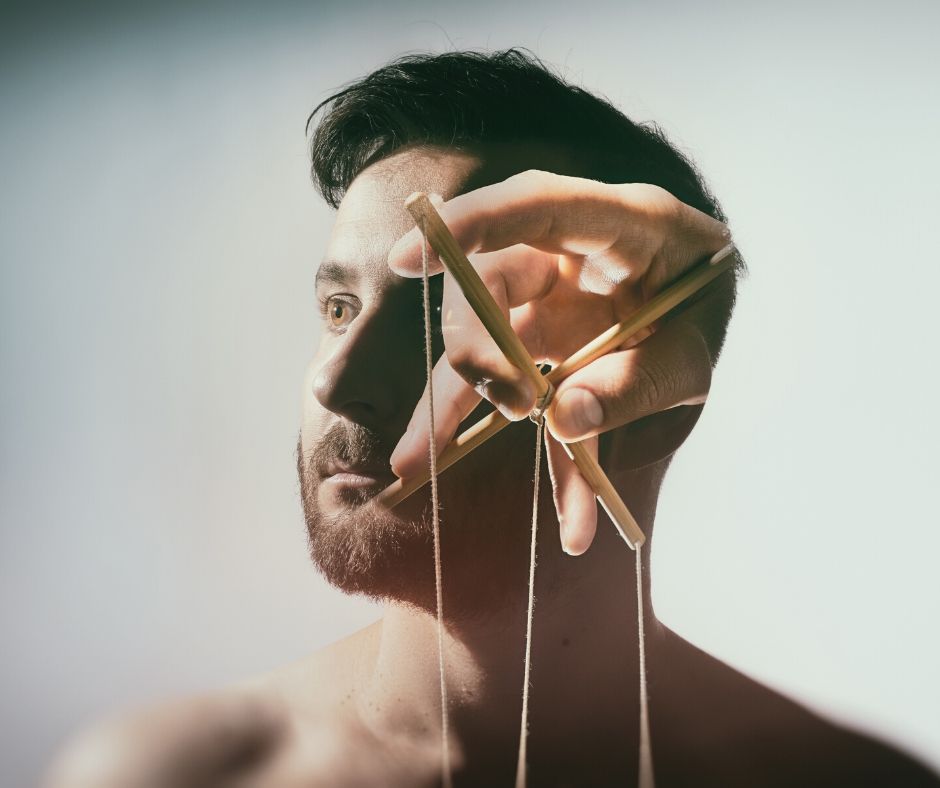
- Step 2 - SOLUTION. The next step should be a firm decision to leave the painful relationship or a decision to change your personality (thoughts and behavior) within the existing relationship. It must be understood that dependent relationships are supported by both members of the union, so if you get rid of addiction, your partner will either have to change in order to follow you into a new healthy relationship, or leave on his own.
- Step 3 - DESIGNATION OF BORDERS. Learn to refuse a partner and defend your position. At this stage, self-love gradually returns, you will begin to do what you like, to listen to your desires.
- Step 4 - FILLING THE VOID . In a dependent relationship, your own hobbies have long faded into the background. Start getting to know yourself again. You can make a list, indicate in it what your partner gives you that you cannot give yourself, and begin to bring joy to yourself on your own. You can also listen to yourself, remember what you loved to do, what was interesting to you, renew lost friendships or family relationships, return to an old hobby or find a new one.
 Sports or dancing will become an effective medicine, because by improving your body, a person not only increases self-esteem, but also acquires health and good mood.
Sports or dancing will become an effective medicine, because by improving your body, a person not only increases self-esteem, but also acquires health and good mood. - Step 5 - EXPLORE YOUR PROBLEM INSIDE. Addiction is a complex psychological condition, not everyone is able to cope with it on their own, to see their problem from the outside. In our Psychology of Addiction course, experienced teachers will tell you how to cope with emotional addiction, teach methods of mental correction and help you acquire a new profession of a psychologist in order to help not only yourself, but also other people who find themselves in a similar situation.
- Step 7 - A NEW RELATIONSHIP. Start building new relationships or analyze your feelings in existing relationships - how strong is your addiction, is there a change for the better. To do this, on a scale of 1 to 100, determine how happy you are.
When should you consult a psychologist?
If you doubt your abilities or none of the available methods helps you change your position as an addict, you should contact a professional.
You need to understand that you do not live your life in addictive behavior, that emotional addiction is not only a state of mind, but also a psychological disorder caused by dislike for yourself.
Addiction destroys people's lives, makes both the addict and his partner suffer. Moreover, if you do not solve the problem with drastic changes, then addictive behavior will accompany you throughout your life, and attempts to build healthy relationships will not be successful. It is necessary to restore self-respect and self-love, only in this way is the path to health and a new life possible.
To change the situation, you will have to work on yourself for a long time and painstakingly. An experienced psychologist will help identify the true causes of addictive behavior and correctly correct them. Remember, if you do nothing, the situation will only get worse.
The famous Roman philosopher Mark Thulius Cicero said wonderful words with which we would like to end today's conversation: "The happiest of all is the one who depends only on himself and sees everyone in himself alone. " Let's believe in ourselves, friends!
" Let's believe in ourselves, friends!
what is dangerous and how to get rid of || Family practice
It is impossible to go through life absolutely without addictions. This is not always bad, and does not necessarily lead to fatal consequences. For example, an all-consuming craving for creativity often brings positive results. This is how literary masterpieces, world artistic values, immortal musical creations are born.
But there is a type of dependence that is not creative, but destructive: from food, alcohol, smoking, drugs, casinos. Among psychological catastrophes are dependencies on partners born in the depths of child-parent relationships.
Definition of the concept
Emotional dependence is not a mental disorder or disease. This is a style of behavior that was imposed on a person at some point in life, left an indelible mark and developed into unhealthy interpersonal relationships in the future.
People who suffer from emotional dependence are unable and unwilling to live their lives, deny their desires and needs. They try to fill the spiritual emptiness by dedicating themselves to another person, with whom they check every step they take.
They try to fill the spiritual emptiness by dedicating themselves to another person, with whom they check every step they take.
Children's stories
“Alina grew up in a family where everyone was on their own. Mom and dad worked hard, even on weekends they sat at the table opposite each other in silence, emotionally squeezed out of the week. Alina and her older brother got crumbs of attention. The domineering and selfish grandmother, whose interests were limited to a tonometer for measuring pressure, did not even try to compensate for the lack of expression of parental love for children. The brother found an outlet in the virtual world of global networks. Alina tried to attract the attention of her parents: she ran away from home, skipped classes so that her mother would take time off from work and fly to school, and then sit and talk with her daughter. She also drew a lot, and secretly waited for approval of her creations...”
There are thousands of similar life stories. Violation of personality development in the early period makes a person in the adult world look for relationships that would make up for the lack of affection and attention. "Unloved" is in constant search of a partner who would give him what he did not receive in childhood and adolescence.
Violation of personality development in the early period makes a person in the adult world look for relationships that would make up for the lack of affection and attention. "Unloved" is in constant search of a partner who would give him what he did not receive in childhood and adolescence.
Consulting
Psychotherapist
Psychologist
Family psychologist
Signs of emotional dependence
Despite the fact that emotionally dependent people have a great desire for stable relationships, it is difficult for them to create a normal family. Due to low self-esteem and emotional "overload" they fail to keep a partner. It is difficult for them to create equal close relationships, they are terribly afraid of being rejected.
Signs of emotionally dependent people:
- they do not understand and do not respect themselves;
- are highly dependent on other people's opinions;
- tend to sacrifice themselves;
- cannot refuse a request even if it is "mission impossible";
- they have no personal desires, interests, aspirations;
- constantly expect to be appreciated and loved;
- completely dissolve in the partner;
- constant need to be close to loved ones;
Such people experience the breakup of relationships much brighter and more painfully than others. It turns out a paradoxical situation: mom is not around, you don’t need to wait for her approval and attention, but this habit has remained. In a situation with an authoritarian mother controlling an adult child, both need psychological help.
It turns out a paradoxical situation: mom is not around, you don’t need to wait for her approval and attention, but this habit has remained. In a situation with an authoritarian mother controlling an adult child, both need psychological help.
“Encountered difficulties? Everything is solved! Book a consultation with us."
Head physician Kharaburova TL
Sign up for a consultation by phone 8 (831) 266-03-06 or leave a request. Sign up
What is the danger of the situation?
Ironically, life brings together emotionally dependent people with people who are not interested in their inner experiences. This happens because they do not know how to distinguish between real love and imaginary. Their dependence is mistakenly considered a manifestation of strong love for a partner. The danger is that there is no equality in such relations. A strong personality will humiliate and suppress a weak one. The addict will receive pain and suffering instead of support.
The addict's internal monologue looks something like this: “I do everything for him (her), do everything he (she) says, try my best to please, but in response I get only irritation and anger. Why?"
The fact is that spiritually immature and insecure addicts are usually not loved, but used. And when they see their complaisantly obsessive attitude, they begin to get angry, look for a flaw, a reason for conflict, in order to get rid of guilt. As a result, relationships become more painful and filled with disappointments every day.
But love is happiness, the celebration of the soul, the joy of life. Healthy relationships involve mutual respect, trust, acceptance of each other with all the advantages and disadvantages. No one puts pressure on anyone and does not control every step, respecting the personality of a loved one.
Treatment programs
Treatment of depression
Treatment of gambling addiction
Family conflicts
Stress treatment
Gambling
Neuroses, phobias
Computer game addiction
Lottery gambling
Alcoholism treatment
Female alcoholism
Drug addiction treatment
Nicotine addiction
What to do?
Everyone has the right not only to give love, but also to receive it with gratitude, without guilt or shame, and to demand mutual respect and care. As soon as an emotionally dependent person understands his condition, it is necessary to take measures to get rid of the way of thinking that interferes with a full life:
As soon as an emotionally dependent person understands his condition, it is necessary to take measures to get rid of the way of thinking that interferes with a full life:
- accept yourself as you are;
- feel inner freedom from other people's opinions;
- develop self-confidence;
- learn to defend your position;
- to form one's own opinion on situations;
- start making your own decisions;
- take responsibility for your life.
One should not be afraid to lose people who bring suffering and pain. There is no shame in saying a firm “no” to a partner who does not appreciate and does not understand efforts. Dealing with emotional addiction is difficult, but real. In Nizhny Novgorod, there is a medical center "Family Practice", whose employees have successful experience in helping people suffering from emotional dependence.
At first, it is extremely important for such people to have the support of a psychologist, because it is difficult for them to cope with emotions on their own.